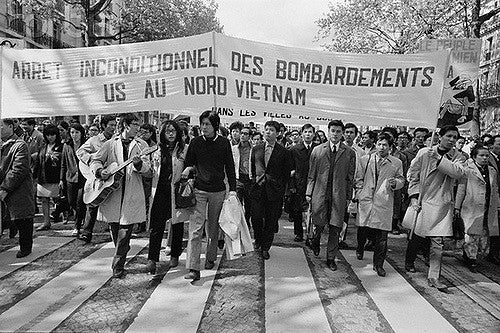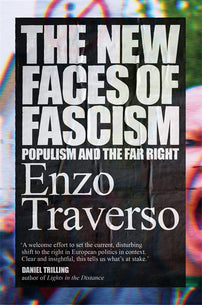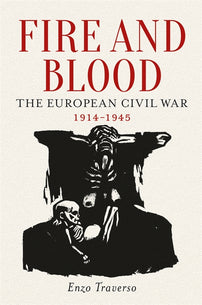Global 1968
"As a revolution, 1968 failed [....]. Nevertheless, 1968 changed almost everything in both culture and politics."

On September 5, the Cornell Institute for European Studies organized a round table titled “Global 1968” with the participation of seven Cornell faculty. This text is my intervention.
I will say a few words on France and Italy in 1968, but I would like to start by emphasizing the “global” character of this extraordinary year, a “global” character which is not only a retrospective reconstruction or representation; it was one of its conscious dimensions. 1968 was a constellation of events which were in dialogue with each other. Think to some crucial moments of that year as they unfolded: it began in January with the Tet offensive of the National Liberation Front in Vietnam; it continued in March with the battle of Valle Giulia, the occupied Department of Architecture of the University of Rome, and the blossoming of the Prague Spring in Czechoslovakia, followed by the Soviet intervention in the summer; it reached a peak in May, in France, with a general strike that paralyzed the entire country; it knew another tragic moment in October, with the student massacre at the Square of Three Cultures, in Mexico City. In fact, 1968 is an iconic landmark which should be inscribed within a wider historical cycle: one year earlier, American students had marched on the Pentagon in Washington and Che Guevara had been killed in Bolivia; one year later, the “hot fall” (autunno caldo) began in Italy. These events, I said, were consciously “global.” The Vietnamese guerrilla fighters knew very well that their struggle was supported by a powerful movement in the US; Jan Palach knew that his self-immolation would have an impact on a world stage, far beyond the Czech borders; and the French strikers and demonstrators had a strong feeling of participating in an international wave of struggles.
The lexicon of those years talked of “three sectors” of the world revolution — an expression that had been coined by Ernest Mandel — which needed to be anti-capitalist in the West, anti-bureaucratic (or anti-Stalinist) in the East, and anti-imperialist in the South. In 1968, with the Tet offensive in Vietnam, the Prague Spring and the barricades of Paris, these three dimensions merged into a single insurgent wave which was not only global but also synchronic. Besides the world wars, the twentieth century did not know other similarly synchronized events.
In fact, 1968 is not an event; it was a process. It cannot be reduced to the “foam” of history, a superficial and ephemeral agitation quickly engulfed by the waves of the Oceans, as suggested by the scholars of the “long durée.” As a revolution, 1968 failed: Czechoslovakia was occupied by the Soviet tanks, De Gaulle won the elections in France, the Christian Democrats in Italy, and Nixon in the US. Nevertheless, 1968 changed almost everything in both culture and politics.
A commonplace depicts this year as a symbolic moment of transition from an authoritarian, repressive, culturally conservative, state-oriented form of capitalism to a modern, hedonistic, sexually free, liberal form of individualism and mass consumer capitalism: a pseudo-revolutionary festival would have prepared the advent of neoliberalism and market society. Maybe this narrative describes the trajectory of a small number of politicians, media managers and businessmen in several countries — those who swapped Mao Zedong suits for membership of the Rotary Club, according to the sarcastic formulation by Guy Hocquenghem — but it certainly does not capture the spirit of 1968; it rather celebrates its defeat ten or fifteen years later. In France—as well as in Italy one year later, with the “hot fall” (autunno caldo)—May 68 was the biggest wave of workers’ strikes the country had ever experienced, three times larger than the strikes of 1936, which had engendered the Popular Front. Everybody stopped working, from the factories to the universities to transportation, op to and including the Opera musicians.
Nevertheless, there are other reasons for which 1968 could be pertinently considered a year of transition, a watershed between two epochs. On the one hand, it was the apogee of the social conflicts of the postwar decades, a period which in France is commonly called “the glorious thirty years” (les trente glorieuses) and in Italy “the economic boom” (il boom economico). Viewed as the expression of the social struggles of the Fordist age, dominated by mass culture, mass production, and mass political parties, 1968 belongs to a closed historical sequence; it is a realm of memory of the twentieth century labor movement.
On the other hand, 1968 announced something new. Beside the industry workers, it was an explosion of new social and political subjects: students, youths, women, homosexuals, racial minorities, environmental and postcolonial actors. It not only claimed equality; it also put forward — particularly with feminism — a new dialectics between equality and “otherness” (in Italian: il diritto alla differenza). This had appeared in the US earlier than in Western Europe, but it became a major feature of that year and the following decade on a global scale, from San Francisco to Rome, from Mexico to Japan. 1968 revealed what today we are accustomed to calling “intersectionality,” a political culture which connects class, race, and gender, and which did not belong to the traditional parties of the left.
This is also the reason why the communist parties — dramatically in France but also in Italy — were so deeply disoriented and unable to answer the claims of these movements: because of their culture, their mindset, and their internal organization, the communist parties were completely unfit to welcome these movements. We can hardly imagine the “organic intellectuals” of the Italian Communist Party — the most open minded in the European left of those years — discussing a text like “Let’s Spit on Hegel” (Sputiamo su Hegel) by the feminist thinker Carla Lonzi (1970). Grounded in the unexpected novelty of the 68 protest, the break between the old and the new left was deep and durable. But this break did not concern only the traditional left; it also concerned, to a certain extent, the entire body of Western critical thought. We know the traumatic conflict that in Germany saw Theodor W. Adorno and Jürgen Habermas opposed to the students. From this point of view, 1968 announced the twenty-first century. Its struggles have more in common with Occupy Wall Street, Black Lives Matter, the Spanish Movimiento 15 M, La Nuit Debout, or Me Too, than with the Popular Front of the 1930s and 1940s.
Now, I would like to approach the controversial question of violence. In Italy, a popular song of those years was titled “Hour of the Gun” (L’ora del fucile) and clearly claimed revolutionary violence. It was the time of the Vietnam War and the guerrilla warfare in Asia and Latin America. In Italy and Germany, 1968 is often considered as the incubation of left terrorism, the inauguration of the “years of lead” (die bleierne Zeit; gli anni di piombo). This interpretation is not wrong, and a critical reassessment — rather than a purely lyrical commemoration — should not skip this dimension: both the RAF and the Red Brigades were born as fragments of the rebellious magma of those years.
This landscape, however, is very unilateral and selective. The Italian writer Erri De Luca has suggested calling the decade opened in Italy by 1968 as “the years of copper.” Copper, as everybody knows, is a very good conductor. These years were a time of high “conductivity” of ideas, experiences, aspirations, and emotions. The filmmaker Chris Marker depicts them as a time in which the law of gravity seemed to have been removed: for a short moment, people free-floated in a realm of utopias. A slogan of the French demonstrations of 1968 was: “It is Forbidden to Forbid!” (Il est interdit d’interdire!). In Italy people claimed: “We Want Everything!” (Vogliamo tutto!). In the following decades, when the spirit of 68 was exhausted, neoliberal capitalism was able to absorb, to metabolize, and finally to denature, this aspiration: a desire for total liberation was destroyed by universal reification: the privatized utopia of a world in which all dreams can be fulfilled as purchasable commodities.
1968 was probably the highest moment of the “principle of hope” that dominated the twentieth century. Its actors were haunted by a strong utopian feeling: the future belonged to them. The world could be changed; more than that: the world was changing, and the vector of this change was collective action. In other words, 1968 meant participation, an unlimited faith in the virtues of collective action. Retrospectively, it appears as the opposite of a neoliberal “conduct of life” based on possessive and competitive individualism. This is why 1968 is a relevant historical landmark for us, at the beginning of the twenty-first century.
Enzo Traverso is Susan and Barton Winokur Professor in the Humanities at Cornell University. His publications include more than ten authored and edited books, including Fire and Blood, The European Civil War 1914-1945 (Verso, 2016) and The New Faces of Fascism, Populism and the Far Right, out on Verso in January 2019.
[book-strip index="1" style="display"]
